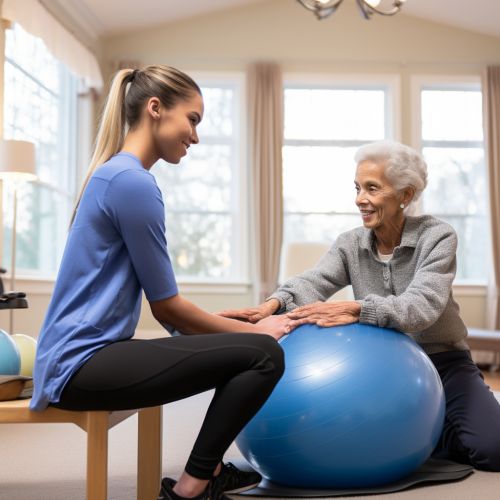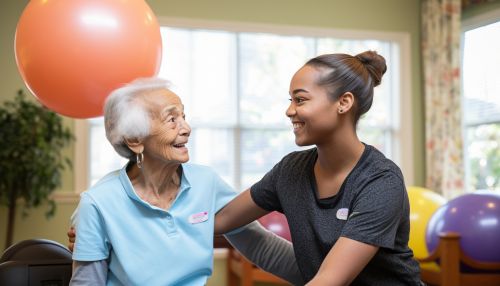Cognitive Mechanisms of Cognitive and Motor Rehabilitation
Introduction
Cognitive and motor rehabilitation is a specialized field of neurorehabilitation that focuses on improving cognitive and motor functions in individuals who have suffered a neurological injury or disease. This field utilizes various therapeutic techniques and interventions that are based on our understanding of the cognitive mechanisms underlying motor control and learning.


Cognitive Mechanisms
Cognitive Control
Cognitive control, also known as executive function, is a crucial cognitive mechanism that plays a significant role in motor rehabilitation. It refers to the mental processes that enable us to plan, focus attention, remember instructions, and juggle multiple tasks successfully. This cognitive mechanism is essential for initiating, stopping, and switching motor tasks.
Working Memory
Working memory is another cognitive mechanism that is vital for motor rehabilitation. It is the system responsible for temporarily holding and manipulating information. In the context of motor rehabilitation, working memory allows individuals to remember and perform complex motor tasks that involve multiple steps or require the integration of several pieces of information.
Attention
Attention is a cognitive mechanism that allows individuals to focus on specific stimuli or tasks while ignoring others. In motor rehabilitation, the ability to pay attention to the task at hand and ignore distractions is crucial for successful rehabilitation outcomes.
Motor Rehabilitation
Motor rehabilitation is a process that aims to improve motor function after a neurological injury or disease. This is achieved through the use of various therapeutic techniques and interventions that are designed to promote motor learning and relearning.
Motor Learning
Motor learning is a set of internal processes associated with practice or experience leading to relatively permanent changes in the capability for motor action. It is a fundamental mechanism in motor rehabilitation, as it allows individuals to acquire new motor skills or relearn previously learned skills that have been lost due to injury or disease.
Motor Relearning
Motor relearning is a concept that involves the reacquisition of lost motor skills through practice and training. It is based on the idea that the brain is capable of neuroplasticity, which is the ability to form and reorganize synaptic connections, especially in response to learning or experience or following injury.
Cognitive Rehabilitation
Cognitive rehabilitation is a therapeutic approach that aims to improve cognitive functions such as attention, memory, and executive functions. This is achieved through the use of various therapeutic techniques and interventions that are designed to promote cognitive learning and relearning.
Cognitive Learning
Cognitive learning is a type of learning that involves mental activities such as thinking, understanding, learning, and remembering. It is a fundamental mechanism in cognitive rehabilitation, as it allows individuals to acquire new cognitive skills or relearn previously learned skills that have been lost due to injury or disease.
Cognitive Relearning
Cognitive relearning is a concept that involves the reacquisition of lost cognitive skills through practice and training. It is based on the idea that the brain is capable of neuroplasticity, which is the ability to form and reorganize synaptic connections, especially in response to learning or experience or following injury.
Conclusion
Understanding the cognitive mechanisms underlying cognitive and motor rehabilitation is crucial for the development of effective therapeutic interventions. These mechanisms, which include cognitive control, working memory, attention, motor learning, and cognitive learning, provide the foundation for the design and implementation of rehabilitation programs that can help individuals regain lost cognitive and motor functions.
